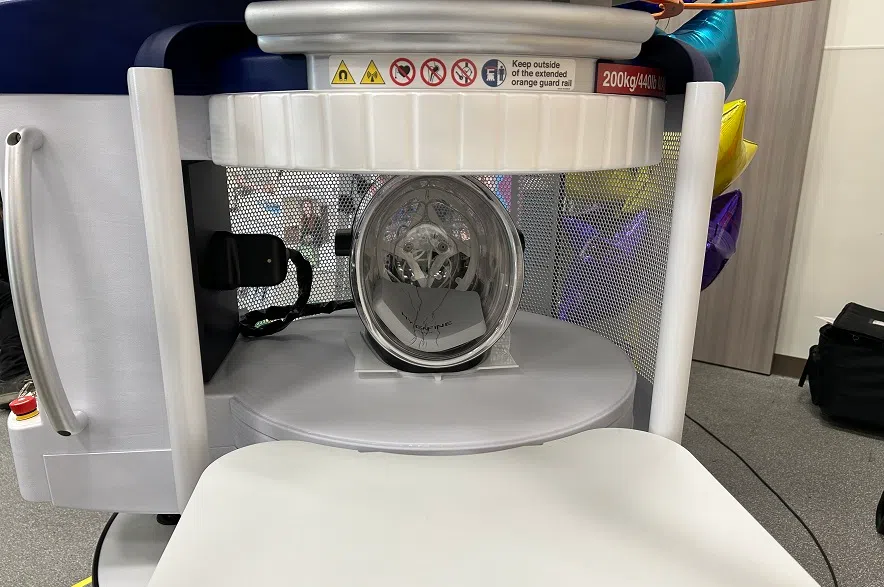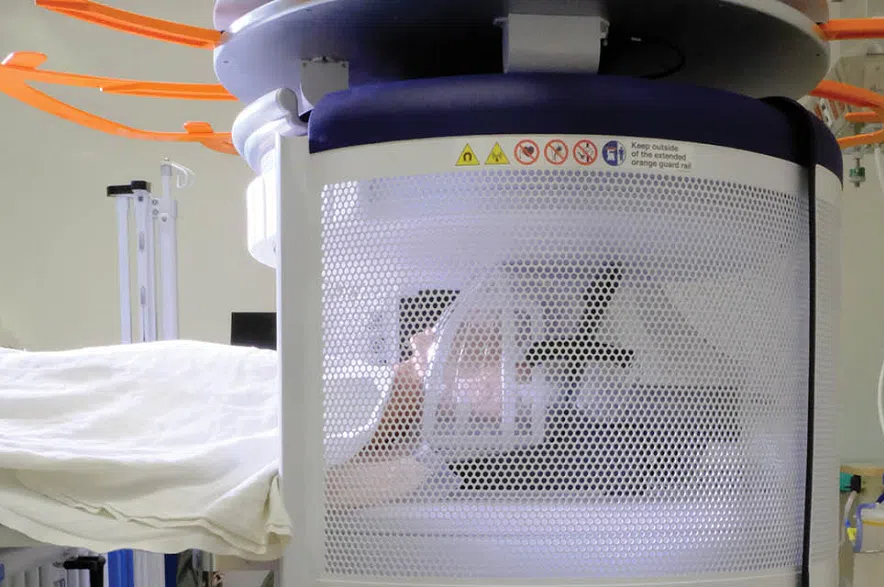Saskatchewan’s first portable pediatric MRI is up and running in Saskatoon.
The machine – a Swoop Portable MR Imaging System located at the Jim Pattison Children’s Hospital – is capable of scanning the brain of patients two years old and up right at their bedsides. In some cases the scan takes just a few minutes, and family members can be present to provide comfort and reassurance during the scan.
The machine will be used in pediatric intensive care and trauma situations in order to help doctors make an accurate diagnoses of a number of neurological issues, including head trauma and suspected abuse.
The hospital’s fundraising efforts raised $1 million to purchase the machine, and the provincial government is providing $419,000 each year to support the operations, including an MRI technologist. According to the government, the MRI will be available eight hours a day, five days a week.
Dr. Terry Klassen, the Saskatchewan Health Authority’s head of pediatrics, said it’s important to add more capacity for MRI scans to the health-care system.

The Swoop Portable MR Imaging System is up and running at the Jim Pattison Children’s Hospital. (Shane Clausing/650 CKOM)
“The demand for the type of imaging this portable MRI provides is great so as a physician, I am excited to see it in use at the hospital,” Klassen said in a statement.
“This innovative piece of equipment is on the cutting edge of how we improve the care of children when they are critically ill.”
In the 2023-‘24 year, the provincial government said 2,993 pediatric patients received MRI scans through the Saskatchewan Health Authority.
“Thank you to the Jim Pattison Children’s Hospital Foundation and other major donors for the generous contributions that have enabled our province to acquire the first pediatric portable MRI,” Health Minister Everett Hindley said in a statement.
“Our government is pleased to invest in this innovation that will allow health care teams to perform MRI scans quickly and safely at a patient’s bedside resulting in faster diagnosis and improved outcomes for children.”
High demand and long waiting lists have seen some Saskatchewan patients leaving the province for MRIs. Between January 1 and the end of March, the health authority reported the average wait time for non-emergency medical imaging was 33.7 days.
The provincial government also recently approved a plan to bring a new MRI machine to St. Joseph’s Hospital in Estevan following a $2 million private donation.
Dr. Gregory Hansen is a pediatric intensivist at the University of Saskatchewan. He’ll be working front and centre with the new piece of technology.
Hansen said he thinks the machine’s portability will make things easier for doctors and safer for patients who are under intensive care.
“For our patients who are on life support, bringing them to an MRI scanner is fought with difficulties including pushing them across the hallway with life support with the possibilities of having them be disconnected from life-sustaining support,” Hansen said.
“Here, we’re able to push the scanner to the bedside, place the patient very carefully from their bed (into the machine) and the parents are able to be with their child while this scan is being done.”
Hansen said he thinks this new machine will be used very frequently.
“I see it almost being a daily necessity,” said Hansen.
“In the U.S. and one of the centres I talked to, they used it very robustly in their neurosurgical clinic. The patient would come and the neurosurgeon would have a simple, clinical question and they would image that patient.”
Results from the new machine are expected to take about the same amount of time as a typical MRI scan.
–with files from 650 CKOM’s Shane Clausing











